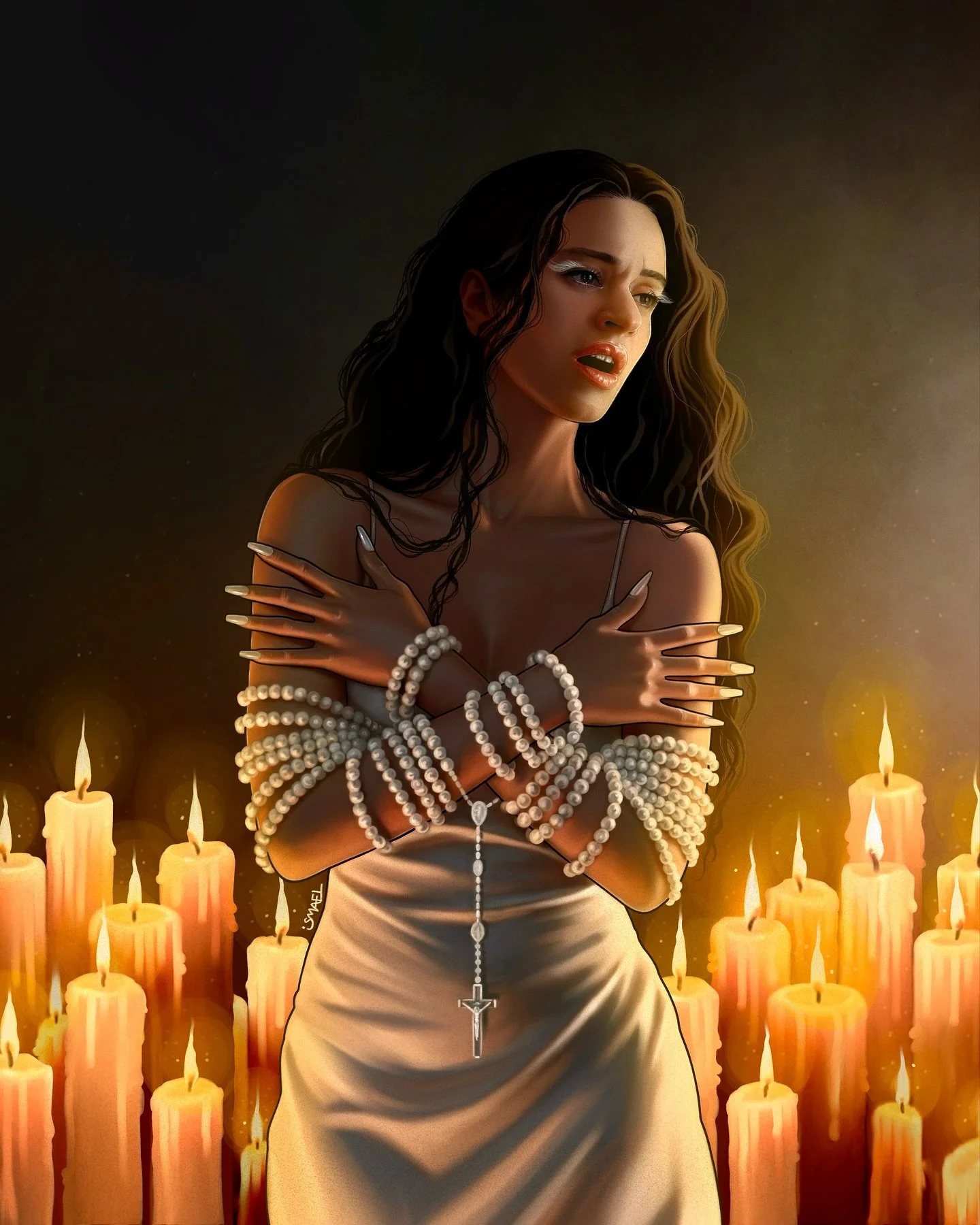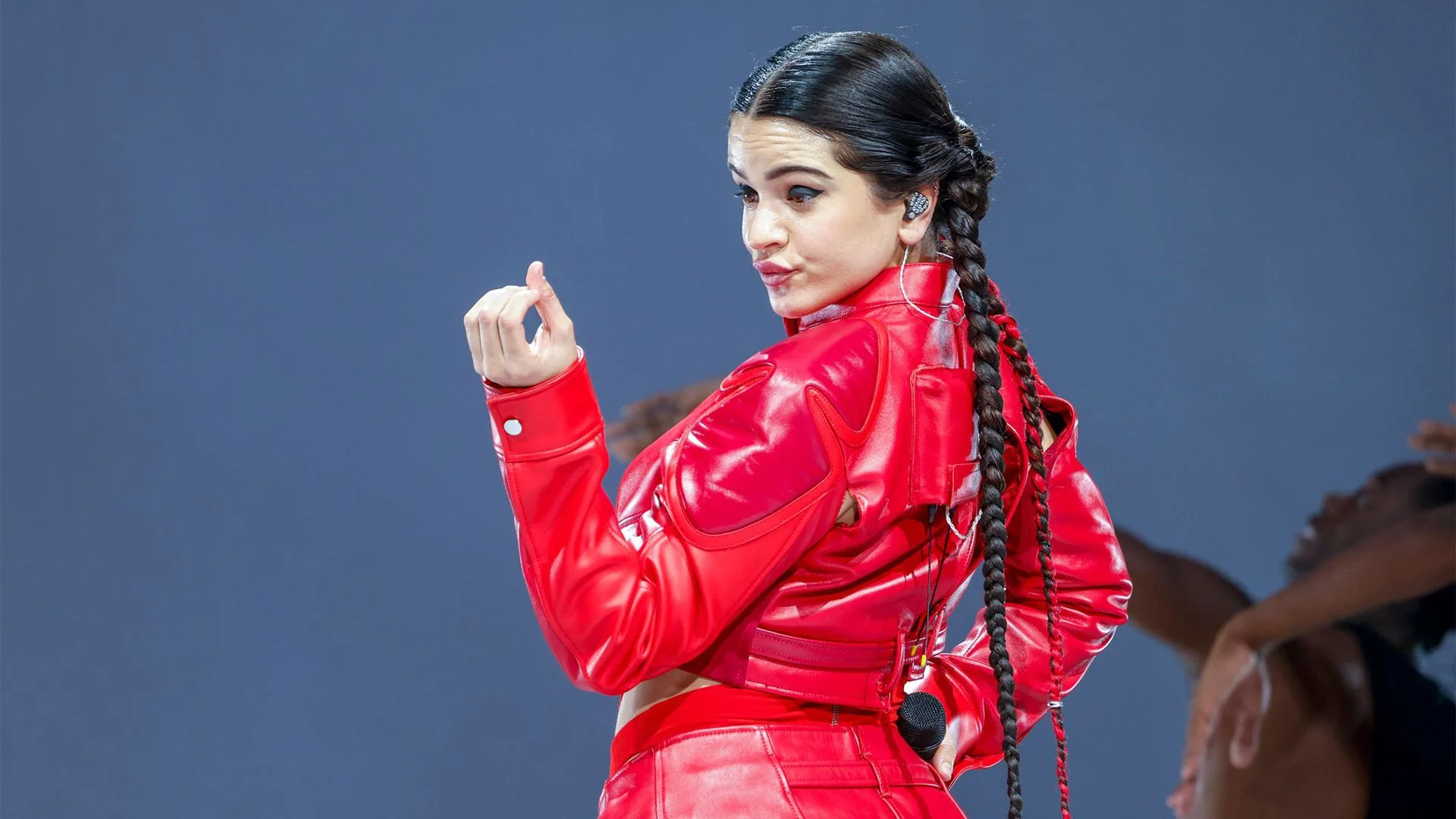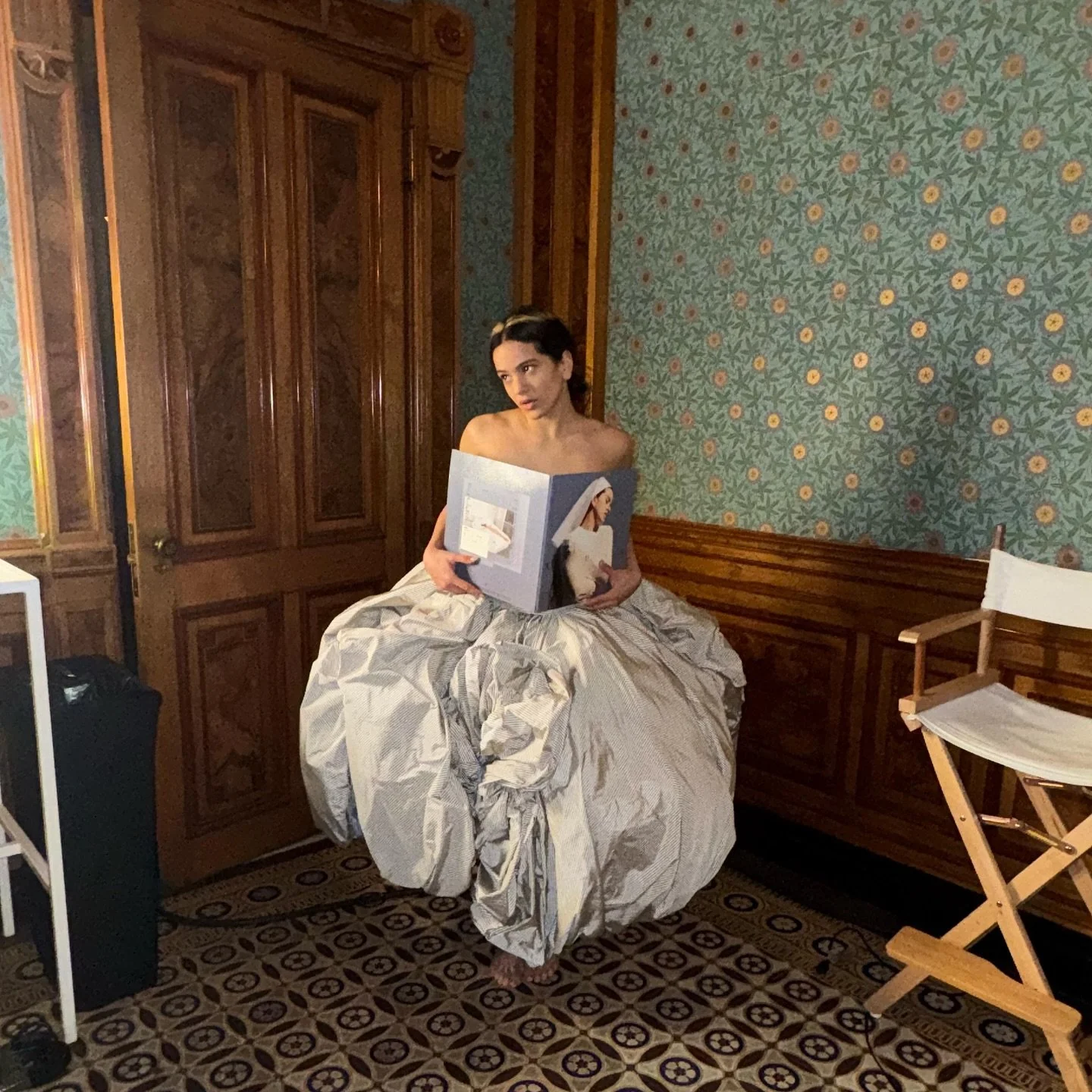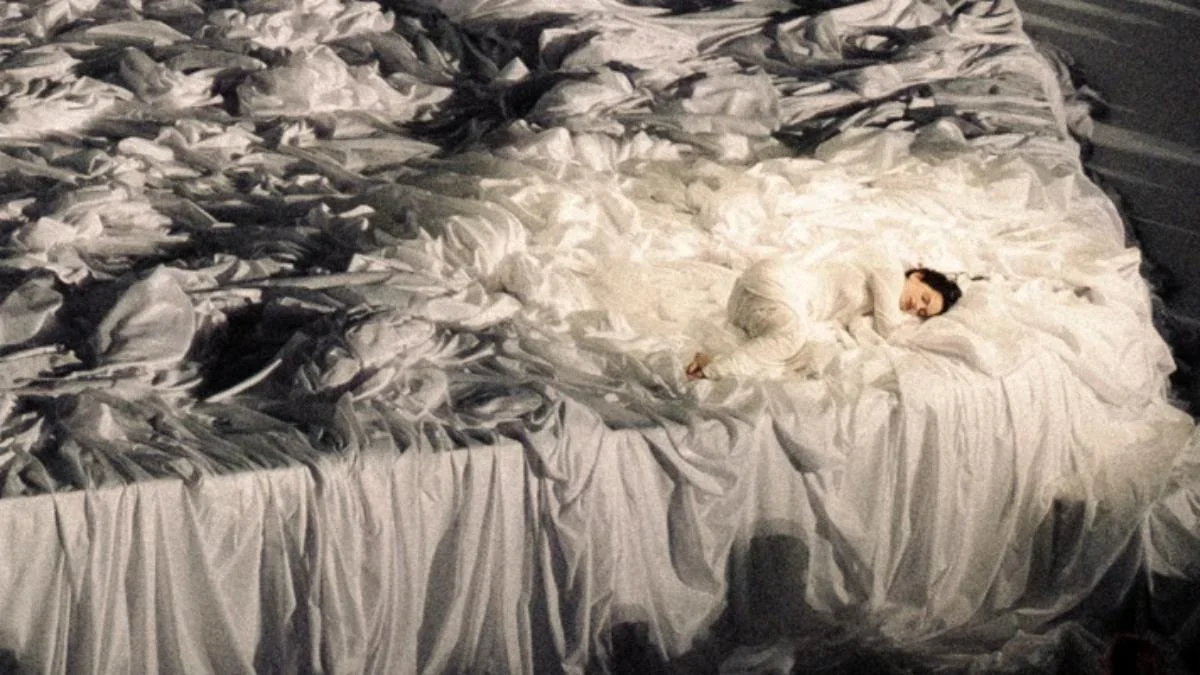Is Rosalía a Witch? The Internet Seems to Think So.
By NOS.3 Editorial Team | Cover image by Ismael Álvarez (IG @ismi)
Let's get one thing straight: Lux is not about witchcraft.
It's about God, devotion, ten female saints, spiritual hunger, and the kind of light that asks you to sit still and pay attention. But the internet has its own logic, and somewhere between El Mal Querer, Motomami, Lux, and the mythology Rosalía has built around herself, one question keeps resurfacing:
Rosalía by Spanish artist Ismael Álvarez
Is Rosalía a witch?
Not literally, but culturally.
And honestly?
There's evidence.
Plenty of it.
Here are the receipts.
Exhibit A: Her Ability to Bend Genres Like They're Metals in a Ritual Fire
Other artists blend sounds. Rosalía transmutes them.
Flamenco becomes R&B. Reggaetón becomes experimental poetry.
Classical arrangements collapse into electronic shards.
Lux turns orchestral music into something spiritual without being religious.
It's not witchcraft, but it's definitely alchemy.
Exhibit B: The Multilingual Spellcasting
Rosalía sings in more than a dozen languages — Arabic, German, Hebrew, Catalan, Portuguese, Mandarin, and Ukrainian.
In Lux, she changes tongues so softly you don't notice the shift. It's seamless. Hypnotic. Almost ritualistic.
Internet comment sections call this:
"multilingual incantations."
And while the truth is rooted in devotion, study, and artistry, the vibe?
Witch-coded.
Exhibit C: Her Aesthetic Codes Keep Drifting Toward the Arcane
From the veils and symbolic poses in Lux to the red leathers of Motomami to the folkloric-meets-futuristic imagery of El Mal Querer— Rosalía's visuals live in a space between the sacred and the mythical.
Fans have stitched together TikToks comparing her iconography to:
1. mystic paintings
2. archetypal feminine divinity
3. medieval symbolism
4. magical folklore across cultures
Again: not witchcraft. (But definitely witch adjacent).
Exhibit D: The Internet's Long-Standing Witchification of Powerful Women
Let's be honest: society has always labeled certain women as "witches" —
the brilliant ones, the disruptive ones, the ones who create too much, feel too much, or dare too much.
Rosalía fits that pattern: young, visionary, experimental, wildly self-possessed, and unafraid of reinvention.
The "witch" label becomes cultural shorthand for: a woman who refuses to be simplified.
Exhibit E: Her Relationship with Symbols, Devotion, and Ritual
Rosalía is obsessed with symbols: not in a gimmicky way, but in a literary, spiritual, research-heavy way.
She's spoken openly about:
1. her admiration for female saints
2. her fascination with devotion
3. her attraction to ritual as a form of discipline
4. her classical training in sacred music
5. her use of intuition and "guided" creative flow
Again: this is not brujería, it is aesthetic mysticism.
But on social media? That line is blurry by design.
Exhibit F: Her Fans' Witch Memes Could Fill a Digital Cathedral
Search "Rosalía witch" on TikTok and you enter a multiverse.
Thousands of posts, edits, micro-essays, and memes:
1. "Rosalía, mother of spells"
2. "Brujita motomami energy"
3. "Rosalía summoned a new era"
4. "She's enchanting us again."
For a generation raised on irony, divine feminine discourse, and astrology memes. The label fits like a cultural joke with a point.
Exhibit G: Her Creative Power Feels a Bit… Supernatural
Rosalía hosted a listening party in Barcelona, wearing a custom Gucci dress for the occasion | Photo by Gucci
Critics actually agree on this part: Whatever Rosalía does, musical, visual, emotional, symbolic, feels charged with energy.
She reinvents so often it's disorienting.
She absorbs entire genres and returns them renewed.
She builds worlds instead of singles.
She changes the soundscape of a decade: almost casually.
If witchcraft is transformation, reinvention, and intention, then Rosalía has been practicing it in the open for years.
So, Is She a Witch?
No.
Not literally.
Not even metaphorically in Lux, which is grounded in spirituality, female saints, and the pursuit of divine light.
But culturally?
Symbolically?
As an internet phenomenon?
Rosalía has become the perfect vessel for the "witch" archetype:
Powerful, creative, intuitive, symbolic, impossible to box in.
And maybe that's the real magic.






